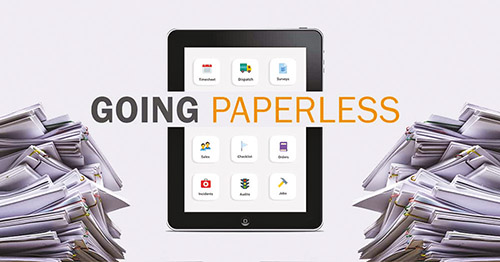
Is “paperless” still a strange new term? I can personally say that my company doesn’t even own a file cabinet, and that will never change. Information-technology folks are infamously against papers so we use every bit of technology to keep us organized.
I’ve written about this subject in the past and I know I get that Monday morning quarterbacks who try to tackle this daunting task and give up a few hours later.
A couple of tips. Like any other clutter—to quote Marie Kondo, an expert at decluttering—only save what brings you joy. Well what papers will give you joy? Lol.
But seriously, think what papers’ hard copy—I used the word “backups” and corrected myself—are truly needed? Do you really need your PSEG bill from 2002? What possible reason could arise where someone would say, “Shneur, please supply all of your PSEG bills from 2002”?
Good news: Most companies not only have a paperless option, they might give you a discount to do so. Check with your bank that you can download a few months more than they offer; that may have to be requested. Some have years available for download.
So for the ultra-organized: You can always download any bill you receive in a PDF and organize accordingly, for instance, garbfamily/2021/house bills/pseg/ June (then save the bill). For those bills that you do have, hard-copy scanning can be done so easily with an app called pdffiller.com for $35 per year. You can edit, sign and take the app and scan any paper bill, then save accordingly. An amazing, time-saving app—a must-have subscription.
Of course, there are those documents that absolutely must be saved, scanned and copied, then saved on a USB key and put in a fireproof safe. Marriage license, ketubah, home title, for instance. Those priceless pictures of family who are no longer with us.
Here are some documents I added to the scan list. Passport; registration for the cars in case they are lost; credit card (copy with a copier just so you have the number in case lost or stolen). Also, your children’s school records. (I know, but it seems to be something parents just want to have.) I can assure you most schools have their data backed up and at the highest end of technology.
So where to save all this data? At this time, if the client can truly say without a smile, “What happens if the cloud, Google Drive or OneDrive goes down?” my usual answer is if that happens you will know and read about it in the news. I add that there are hundreds of folks like myself working 24/7 making sure your data is backed up and secure, though many people have some outdated external drive they haven’t checked in years if their data is backed up.
I’m OK with either Microsoft OneDrive or Google Backup and Sync. Note: these are officially online storage, but the cost and convenience can’t be beaten.
Don’t wait! There is no worse call an engineer can take than talking to the client who just delayed and delayed—and lost everything. Or a flood in the basement ruined all the hard copies. Disaster recovery can start in the thousands.
Take one company at a time, spend a few hours scanning per week, such as snow days many of us used during the COVID era to tackle the scanning paperwork at our homes or offices.
Here is something to add: Usually when one goes paperless an email is supplied at the start of the process. I’ve come to learn that many companies will use that email as an emergency contact no matter how many times you call to update or add another email. Some companies can suspend an account over a $3 underpayment. There are no humans cutting anyone off. The shut-offs are all automated, so take the time to update the email that you know you will always have access to, NOT your work email but a personal @gmail.com address.
Something to check proactively (I usually do this when the clocks change): Change your passwords all around; call your must-have carriers to make sure the constant number is your smartphone and the email listed is current.
Keep this thought in mind: Going paperless is not a futuristic task. Most young people today don’t even have a physical address they consider sending snail mail to. The only exception seems to be the Department of Motor Vehicles. I had someone who needed to just have a physical letter sent to his address at home, which he created and sent the letter just for the DMV purposes. Some agencies seem to be back in the Stone Age. Don’t let that one company turn your basement/garage into a paper palace.
Shneur Garb is the founder and owner of The Garb I.T. Consulting Group, which focuses on EdTech and MedTech and getting data into the cloud.













